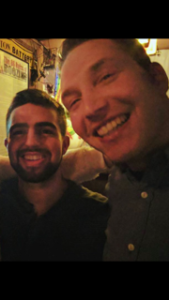By Michael Preston
It has quickly become the thing I dread the most about every morning. No, not the alarm. Not the daily grind of the upcoming workday. Not even the small fortune that I’ll inevitably be spending on food for the rest of the day. Nope – the thing I dread the most every morning is checking the weather app on my phone to find out the humidity forecast for the day. This daily routine has turned into a sadistic exercise where I get to envision just how much sweat my shirts and slacks will likely have to absorb today, as well as just how much I will be suffering during the short journeys from apartment to Metro station and Metro station to work. It is safe to say that I don’t do well in this climate.
How anyone can do this on a regular basis for years and years is beyond me. Suits? Dark suits? Sleeves? Summer heat? Any kind of heat? What kind of monster decided this was a good idea? And when will business formal shorts become a thing? Feel free to join my movement to introduce shorts and sleeveless jackets to the guidelines of business formal as I unstick my shirt from my back and look for something to wipe the sweat that is glistening on my forehead.
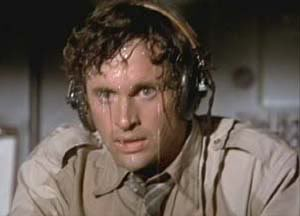
Maybe I’m spoiled from the dry mountain weather of Boulder or the Mediterranean climate of my hometown in California…no, I’m definitely spoiled. But I have no idea how I’m supposed to adapt to this change short of showing up to work in a tank top and flip-flops. I thought I sweated a lot when I work out, but it is a whole other level when you are trying restrain said sweating. I think I sweat more when I know I should not be sweating. What a fantastic situation to be in!
The best part is that it’s only going to get hotter! Despite locals claiming that August is the hottest month of summer, that title actually goes to July, according to the Washington Post. And the summers have only been getting hotter and more humid over time, meaning in a few weeks’ time there’s a possibility that all that is left of me is a husk drained of all fluids. Please send help in the form of industrial-strength fans and ice packs or this blog post may be my last form of contact with the world.
 Until sleeves become optional in the workplace and Calvin Klein introduces a line of formal sweat-wicking apparel to compete with Under Armour, my feelings towards the humidity will be firmly planted in the “Above 75” category even if the actual weather is in the “60-65” region. This naïve California kid is not cut out for the wrath of Mother Nature.
Until sleeves become optional in the workplace and Calvin Klein introduces a line of formal sweat-wicking apparel to compete with Under Armour, my feelings towards the humidity will be firmly planted in the “Above 75” category even if the actual weather is in the “60-65” region. This naïve California kid is not cut out for the wrath of Mother Nature.

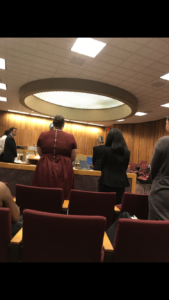 In the audience sits a family, and while it’s been years since they lost their loved one, they still wait with solemn faces. They lean forward in moments of a potential breakthrough and dismiss themselves when the evidence becomes too daunting. When the counsel continuously objects, further delaying long-awaited closure, those who knew the victim roll their eyes, scowl, or even go so far as to throw their hands in the air out of impatience. Some grab the hand of the person sitting next to them, maybe to channel their frustration less obviously or simply out of the need for comfort.
In the audience sits a family, and while it’s been years since they lost their loved one, they still wait with solemn faces. They lean forward in moments of a potential breakthrough and dismiss themselves when the evidence becomes too daunting. When the counsel continuously objects, further delaying long-awaited closure, those who knew the victim roll their eyes, scowl, or even go so far as to throw their hands in the air out of impatience. Some grab the hand of the person sitting next to them, maybe to channel their frustration less obviously or simply out of the need for comfort. 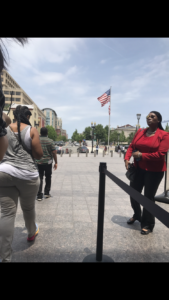

 counting cancel on me because we (mutually!) could not locate each other. Now that I’m about four weeks in, I have managed to figure out that yes, the streets are numerical, but bottom line is there is definitely room for improvement.
counting cancel on me because we (mutually!) could not locate each other. Now that I’m about four weeks in, I have managed to figure out that yes, the streets are numerical, but bottom line is there is definitely room for improvement.  an Uber to Cannon Office House. Other than that, I’ve relied on others to know where we are going and so far, it has worked – shout out to Catherine, even if we get to work 30+ minutes early!
an Uber to Cannon Office House. Other than that, I’ve relied on others to know where we are going and so far, it has worked – shout out to Catherine, even if we get to work 30+ minutes early! But despite all my mishaps, the most enjoyable part has been learning to navigate DC culture – figuring out how DC operates, learning to guide myself through meeting entirely new people, and being thrown into a new lifestyle. This crazy city is quite the culture shock, especially when you are being led (or more like thrown into the deep end) by Jon, Katey, and Amos. By week four, I have actually managed to understand the complicated, intertwined social scene and interactions, the balance necessary to balance work and class, and most importantly adulting. Overall, there is a learning curve, but if someone is teaching a navigation class, please, please sign me up.
But despite all my mishaps, the most enjoyable part has been learning to navigate DC culture – figuring out how DC operates, learning to guide myself through meeting entirely new people, and being thrown into a new lifestyle. This crazy city is quite the culture shock, especially when you are being led (or more like thrown into the deep end) by Jon, Katey, and Amos. By week four, I have actually managed to understand the complicated, intertwined social scene and interactions, the balance necessary to balance work and class, and most importantly adulting. Overall, there is a learning curve, but if someone is teaching a navigation class, please, please sign me up.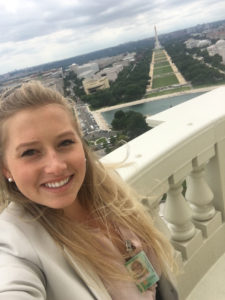
 I saw George Washington painted holier than Adam in the Sistine Chapel. There were statues that were so well-crafted you couldn’t discern them from the real thing. There were a lot quirky things that caught my attention; for example, a square man from Hawaii is featured on the House side. Turns out he was a leper and had to wear essentially a box his entire life because of the illness, so he was actually square.
I saw George Washington painted holier than Adam in the Sistine Chapel. There were statues that were so well-crafted you couldn’t discern them from the real thing. There were a lot quirky things that caught my attention; for example, a square man from Hawaii is featured on the House side. Turns out he was a leper and had to wear essentially a box his entire life because of the illness, so he was actually square.
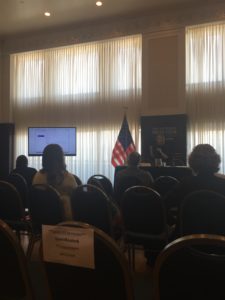 Despite the large number of women currently getting their degrees in journalism, the field is still largely male. I was grateful for the opportunity to attend the Pulitzer Center’s Gender Lens Conference last week.
Despite the large number of women currently getting their degrees in journalism, the field is still largely male. I was grateful for the opportunity to attend the Pulitzer Center’s Gender Lens Conference last week. 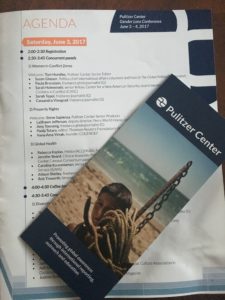 world from a colonial gaze.”
world from a colonial gaze.”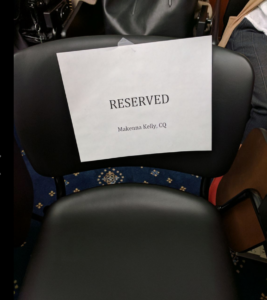
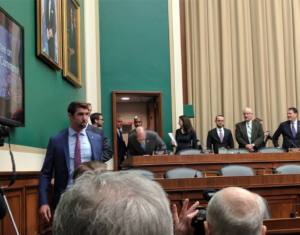 Michael Phelps gave his personal testimony. It was pretty standard to say the least, but the press went bonkers. Camera people were all over the place; ESPN, C-SPAN, CNN. You name it, they were crouched on the floor looking for the perfect angle of the most-adorned Olympian of all time.
Michael Phelps gave his personal testimony. It was pretty standard to say the least, but the press went bonkers. Camera people were all over the place; ESPN, C-SPAN, CNN. You name it, they were crouched on the floor looking for the perfect angle of the most-adorned Olympian of all time.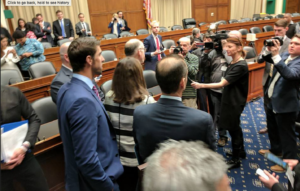
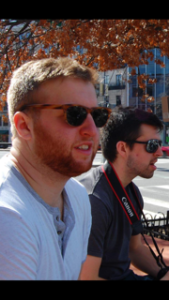 However, the size of the city was not what I was most nervous about while pondering what my semester in D.C. would be like. I had maneuvered my way around cities like Chicago and London before, and was fairly comfortable with my ability to do so here. What I was more concerned about was whether or not I would have cool roommates that I could spend time with.
However, the size of the city was not what I was most nervous about while pondering what my semester in D.C. would be like. I had maneuvered my way around cities like Chicago and London before, and was fairly comfortable with my ability to do so here. What I was more concerned about was whether or not I would have cool roommates that I could spend time with. 